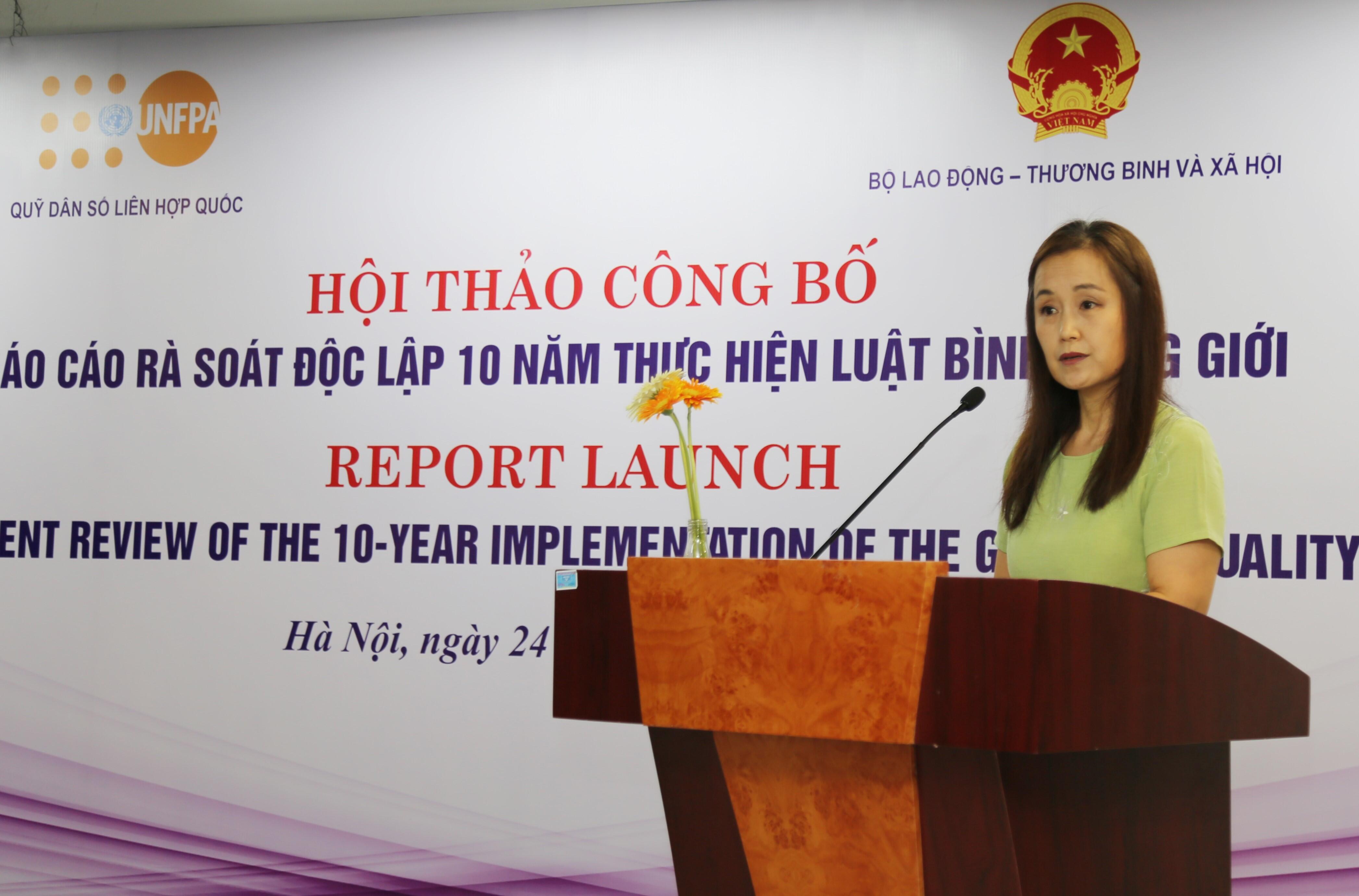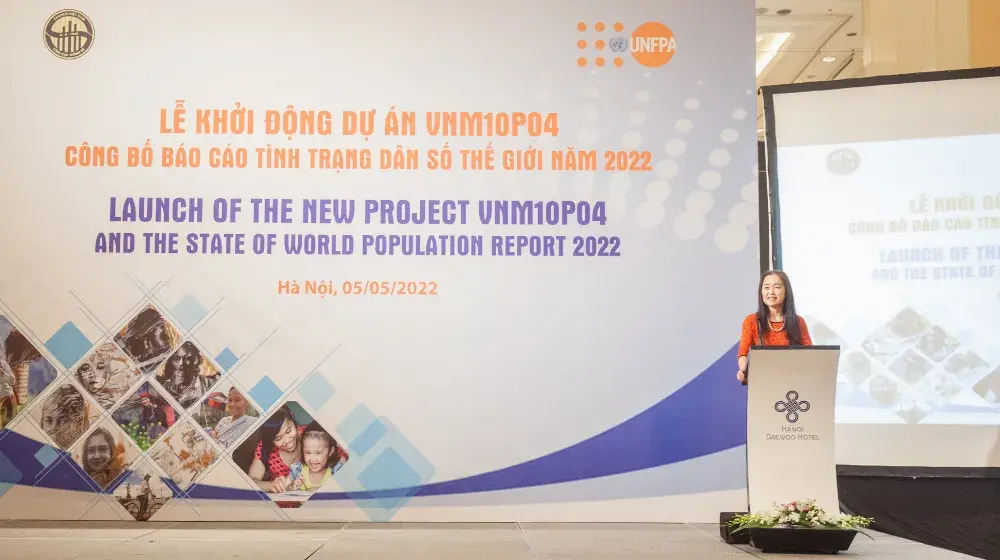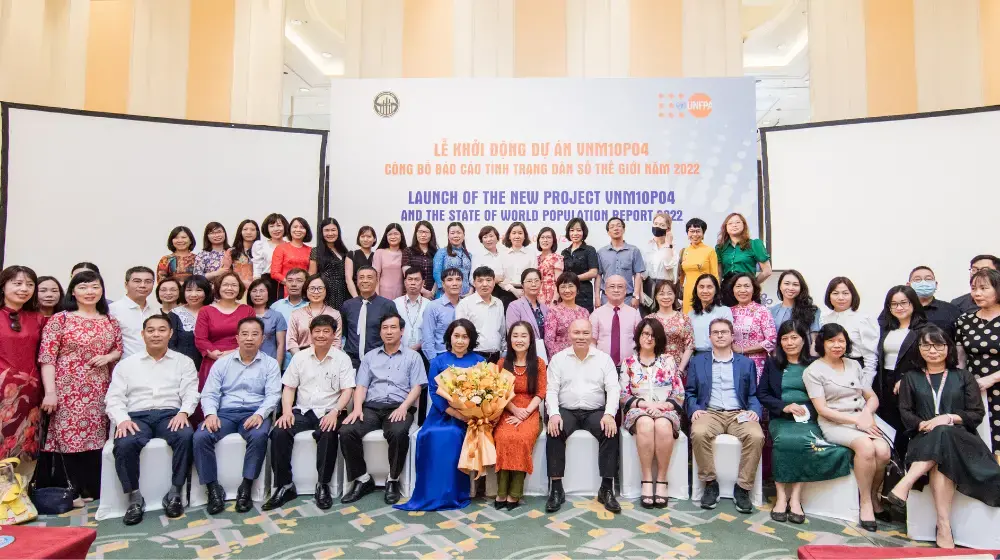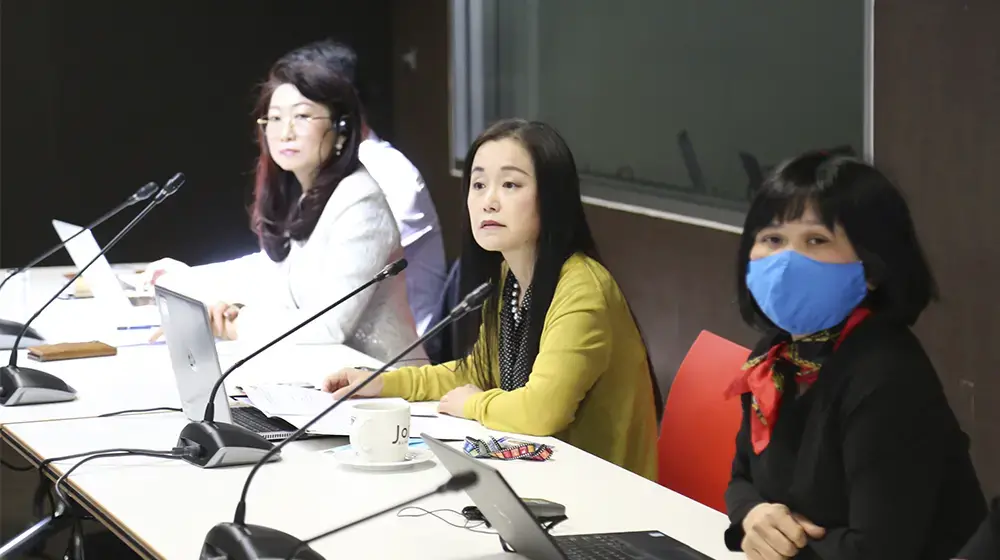Honorable Vice Minister of Labour, Invalids and Social Affairs, Madame Nguyen Thi Ha;
Distinguished guests, Representatives from Government Ministries, social organizations, and research institutes;
Embassies, International development partners, NGOs, and UN colleagues; Young people and media fellows,
Ladies and gentlemen,
On behalf of the United Nations Population Fund (UNFPA) in Viet Nam, I am much honored to be here today to launch the review report of the ten year implementation of the Gender Equality Law, which was conducted from early 2018 to June 2019. I very much value and greatly appreciate the partnership, commitment and leadership of MOLISA in coordination and implementation of the joint efforts on gender equality and gender-based violence over the past years, as well as on the implementation of the UNFPA country programme for the period 2017-2021. The achievement we have made so far shows a strong evidence of the great collaboration and partnership among Ministries, social organizations, and development partners.
The year 2020 is a pivotal year for advancing gender equality worldwide. It marks 25 years anniversary since the adoption of the Beijing Declaration and Platform for Action, which is the most progressive blueprint for advancing women’s rights. The year 2020 also marks 20 years anniversary since the adoption of the UN Security Council Resolution 1325 on Women, Peace and Security. And of course, as we celebrate 75 years following the establishment of the United Nations, we also mark the year 2020, the year 2020 marks the Decade of Action for the Sustainable Development Goals, which for the first time, gender equality and empowerment of women are set as a stand-alone goal in international development.
Viet Nam is a signatory to numerous international instruments addressing gender equality, women’s rights and women’s empowerment. In 2006, the country promulgated the Law on Gender Equality, which mandates state entities to fulfill their responsibilities on gender equality and address any violations.
During 10 years of implementation of the Gender Equality Law, Viet Nam has become one of the countries in the Asia and the Pacific region, which has made a lot of progress on gender equality. We have seen remarkable achievements on women’s rights and leadership, notably in health and education and by strengthening the legal and institutional frameworks.
While we celebrate such good progress on gender equality, we do need to continue to aim for higher results towards equitable Vietnamese society. Let me provide a few examples:
- The National Assembly has its first chairwoman, and this is excellent and inspirational, but 72.7% of members of the National Assembly are still men.
- A gender pay gap of 13% persists, with a continuing concentration of women in low-paid jobs in the informal sector who are outside the scope of the Labour Code. They often do not have access to social protection.
- There is a high prevalence of violence against women and girls, son preference, and gender-biased sex selection.
- On average women carry out three times more unpaid care and domestic work than men.
- Also, under the current COVID-19 context, gender inequalities can be exacerbated, which can lead to reversals of progress that Viet Nam has made in the past decades.
Distinguished guests,
As one of the 17 SDGs, gender equality and empowerment of women are indispensable for all aspects of people’s socio-economic lives. Gender equality is not only a basic human-right, but also a necessary foundation for a peaceful and prosperous Viet Nam. Without addressing the issue of gender equality, there is no way that Viet Nam can achieve SDGs by 2030. We have only 10 years left to do that.
As we launch the report of the 10 years implementation review of the Gender Equality Law today, I would like to share my personal story.
I came from Japan, from the very conservative “samurai” province. Traditional values and masculinities are strong and change in socio-cultural norms is extremely difficult. As I was growing up, I was constantly reminded that as a girl, I do not need to receive higher education, and this is despite the fact that I was always the top student at school. Everyone around me, including relatives, grandparents, uncles and aunties said, if I go to the university and if I am highly educated, no one will marry me, and I will go without having a husband and children in my life. They pitied me for that possibility.
But my father was different. My father is a disabled man. He lost his hearing during the Second World War because there was no medicine in war-stricken Japan at that time. As he was unable to listen and follow his class, he stopped going to junior secondary school. He reads a lot though from the head to the toe of newspapers every day. And he wanted to make sure that his children, whether it is a girl or a boy, are well educated. At least in a post-war Japan, there was complete gender equality in education, and even in provincial areas where I grew up, I was able to receive quality education. It is only when I realized that after school, and when I go into societies, I will not receive the same level of gender equality in life, that I left Japan. I never returned to live in Japan since then. And I believe I made the right decision as Japan substantially lags behind, still today, when it comes to gender equality.
But as I serve Viet Nam as UNFPA Representative, I just think it will be more than unfortunate if Vietnamese women cannot reach their potential because of the country’s systems, processes and practices. We have a massive responsibility today to take the findings and recommendations of the 10 years review of the Gender Equality Law very seriously, to help the lives of women in Viet Nam. And the revision of the Gender Equality Law presents a great opportunity.
Why should women be secondary? Why should women submit ourselves to gender stereo-types? Why should women continue to suffer from domestic violence at home? Why should girls not be born just because they are girls?
Thank you for your attention, and by the way, I did go to the university including two Master’s programmes, and I am married with children.
Thank you.





